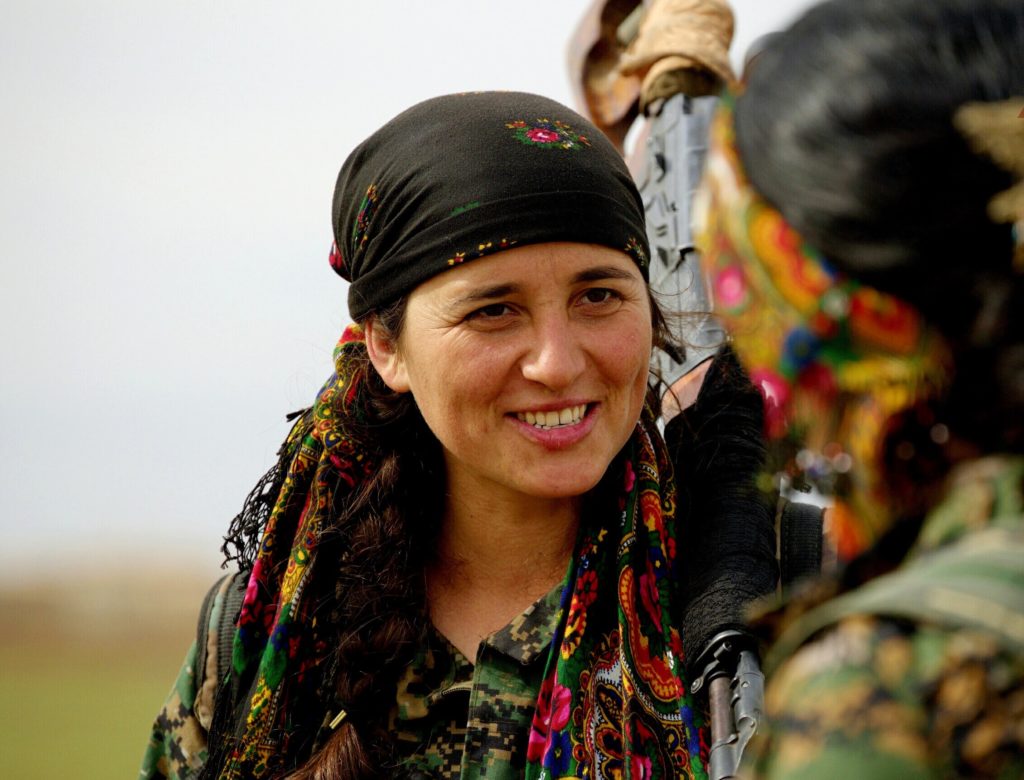
Source: Foreign Policy in Focus
As the U.S. foreign policy establishment grapples with President Donald Trump’s decision to withdraw U.S. forces from Syria, officials in Washington are overlooking what could be the biggest impact of his decision: the effect on the revolution in Rojava, the most promising democratic experiment in the Middle East.
Since Trump announced on December 19 that U.S. forces in Syria are returning home, most of the foreign policy establishment has lapsed into a kind of collective panic about the geopolitical implications for U.S. power and influence in the Middle East. Although some U.S. officials support Trump’s decision, arguing that a direct U.S. military presence in Syria is no longer necessary, most foreign policy experts portray Trump’s move as a victory for U.S. enemies and a sacrifice of the Kurdish-led Syrian Democratic Forces (SDF), the U.S.-backed forces who are fighting the Islamic State in Syria.
“A precipitous U.S. troop withdrawal will undermine critical U.S. interests in Syria,” argues former U.S. official Mona Yacoubian, who is now a senior advisor at the U.S. Institute of Peace.
Throughout the debate, U.S. officials have done little to consider the ramifications of Trump’s decision for the revolution in Rojava. Without U.S. forces positioned in Rojava, the Kurdish-led region in northeastern Syria, the Syrian Kurds who are leading a social revolution there face an imminent attackfrom Turkey, which has repeatedly threatened to eradicate them and their revolution.
“If we leave now, the Kurds are going to get slaughtered,” Senator Lindsey Graham (R-SC) warned.
The revolution in Rojava is one of the few positive developments to emerge from the civil war in Syria. For the past several years, the Syrian Kurds have been creating self-governing communities that involve the democratic participation of their residents, including women and ethnic minorities. Committed to the principles of feminism, environmentalism, and democratic confederalism, the Syrian Kurds have united these communities in an autonomous democratic federation across northern Syria.
Sadly, U.S. officials have never fully supported the revolution in Rojava. After the Syrian Kurds announced the creation of their new autonomous region in March 2016, U.S. officials spoke outagainst it. This past November, U.S. Special Representative for Syria Engagement James Jeffrey told Congress that the area is primarily important as leverage in negotiations with the Syrian government. The U.S. relationship with the Syrian Kurds, Jeffrey said, is “tactical and temporary.”
Even against the backdrop of this limited U.S. support, Trump’s recent decision is a serious betrayal. Over the past several years, U.S. officials have repeatedly praised the Syrian Kurds as their most effective partners in the fight against the Islamic State in Syria, pledging not to abandon them. Last September, Trump praised the Kurds as “great, great people,” insisting that “we have to help them.”
“Tens of thousands of Kurds died fighting ISIS,” Trump said. “They died for us and with us.”
With his latest announcement, Trump has thrown all of these notions into disarray, leaving administration officials backtracking from their previous commitments. Secretary of State Mike Pompeo, who had previously called the Syrian Kurds “great partners” and pledged to include them in future negotiations to end the war in Syria, now evades questions about whether the United States has an obligation to help them.
National Security Advisor John Bolton recently said that the U.S. withdrawal is conditional on a Turkish pledge not to attack the Kurds, but he confirmed that “we are going to withdraw from northeastern Syria.”
Given the upcoming U.S. withdrawal, the Syrian Kurds are facing an existential threat from Turkey. For years, Turkish President Recep Tayyip Erdogan has been threatening to eradicate the Syrian Kurds, portraying them as terrorists no different from the Islamic State.
Erdogan once said that “we will do everything and anything we need to do to eliminate the Kurds,” according to former Secretary of Defense Chuck Hagel.
Early last year, the Turkish government acted on its threats, invading and conquering Afrin, one of the three cantons of Rojava. Some 200,000 residents fled the area and an estimated 500 civilians were killed. More than 800 Kurdish fighters died trying to defend the area.
Another Turkish incursion into northern Syria would be disastrous for the Syrian Kurds and the revolution in Rojava.
Some U.S. officials have indicated that they can help the Syrian Kurds by keeping them supplied with weapons. The Emergency Committee for Rojava, a recently organized support network, is calling on Congress to provide economic, political, and military assistance.
If it really is the mission of the United States to help democratic movements around the world, then U.S. officials will come to the assistance of the Syrian Kurds. The next moves by the Trump administration may very well determine whether the revolution in Rojava and the people leading it can survive.
